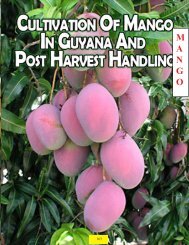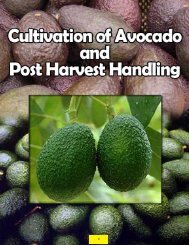- Page 1 and 2:
FREEDOM PALESTINE FREEDOM PALESTINE
- Page 3 and 4:
FREEDOM PALESTINE FREEDOM PALESTINE
- Page 5 and 6:
FREEDOM PALESTINE FREEDOM PALESTINE
- Page 7 and 8:
FREEDOM PALESTINE FREEDOM PALESTINE
- Page 9 and 10:
FREEDOM PALESTINE FREEDOM PALESTINE
- Page 11 and 12:
FREEDOM PALESTINE FREEDOM PALESTINE
- Page 13 and 14:
FREEDOM PALESTINE FREEDOM PALESTINE
- Page 15 and 16:
FREEDOM PALESTINE FREEDOM PALESTINE
- Page 17 and 18:
FREEDOM PALESTINE FREEDOM PALESTINE
- Page 19 and 20:
FREEDOM PALESTINE FREEDOM PALESTINE
- Page 21 and 22:
FREEDOM PALESTINE FREEDOM PALESTINE
- Page 23 and 24:
FREEDOM PALESTINE FREEDOM PALESTINE
- Page 25 and 26:
FREEDOM PALESTINE FREEDOM PALESTINE
- Page 27 and 28:
FREEDOM PALESTINE FREEDOM PALESTINE
- Page 29 and 30:
FREEDOM PALESTINE FREEDOM PALESTINE
- Page 31 and 32:
FREEDOM PALESTINE FREEDOM PALESTINE
- Page 33 and 34:
FREEDOM PALESTINE FREEDOM PALESTINE
- Page 35 and 36:
FREEDOM PALESTINE FREEDOM PALESTINE
- Page 37 and 38:
FREEDOM PALESTINE FREEDOM PALESTINE
- Page 39 and 40:
FREEDOM PALESTINE FREEDOM PALESTINE
- Page 41 and 42:
FREEDOM PALESTINE FREEDOM PALESTINE
- Page 43 and 44:
FREEDOM PALESTINE FREEDOM PALESTINE
- Page 45 and 46:
FREEDOM PALESTINE FREEDOM PALESTINE
- Page 47 and 48:
FREEDOM PALESTINE FREEDOM PALESTINE
- Page 49 and 50:
FREEDOM PALESTINE FREEDOM PALESTINE
- Page 51 and 52:
FREEDOM PALESTINE FREEDOM PALESTINE
- Page 53 and 54:
FREEDOM PALESTINE FREEDOM PALESTINE
- Page 55 and 56:
FREEDOM PALESTINE FREEDOM PALESTINE
- Page 57 and 58:
FREEDOM PALESTINE FREEDOM PALESTINE
- Page 59 and 60:
FREEDOM PALESTINE FREEDOM PALESTINE
- Page 61 and 62:
FREEDOM PALESTINE FREEDOM PALESTINE
- Page 63 and 64:
FREEDOM PALESTINE FREEDOM PALESTINE
- Page 65 and 66:
FREEDOM PALESTINE FREEDOM PALESTINE
- Page 67 and 68:
FREEDOM PALESTINE FREEDOM PALESTINE
- Page 69 and 70:
FREEDOM PALESTINE FREEDOM PALESTINE
- Page 71 and 72:
FREEDOM PALESTINE FREEDOM PALESTINE
- Page 73 and 74:
FREEDOM PALESTINE FREEDOM PALESTINE
- Page 75 and 76:
FREEDOM PALESTINE FREEDOM PALESTINE
- Page 77 and 78:
FREEDOM PALESTINE FREEDOM PALESTINE
- Page 79 and 80:
FREEDOM PALESTINE FREEDOM PALESTINE
- Page 81 and 82:
FREEDOM PALESTINE FREEDOM PALESTINE
- Page 83 and 84:
FREEDOM PALESTINE FREEDOM PALESTINE
- Page 85 and 86:
FREEDOM PALESTINE FREEDOM PALESTINE
- Page 87 and 88:
FREEDOM PALESTINE FREEDOM PALESTINE
- Page 89 and 90:
FREEDOM PALESTINE FREEDOM PALESTINE
- Page 91 and 92:
FREEDOM PALESTINE FREEDOM PALESTINE
- Page 93 and 94:
FREEDOM PALESTINE FREEDOM PALESTINE
- Page 95 and 96:
FREEDOM PALESTINE FREEDOM PALESTINE
- Page 97 and 98:
FREEDOM PALESTINE FREEDOM PALESTINE
- Page 99 and 100:
FREEDOM PALESTINE FREEDOM PALESTINE
- Page 101 and 102:
FREEDOM PALESTINE FREEDOM PALESTINE
- Page 103 and 104:
FREEDOM PALESTINE FREEDOM PALESTINE
- Page 105 and 106:
FREEDOM PALESTINE FREEDOM PALESTINE
- Page 107 and 108:
FREEDOM PALESTINE FREEDOM PALESTINE
- Page 109 and 110:
FREEDOM PALESTINE FREEDOM PALESTINE
- Page 111 and 112:
FREEDOM PALESTINE FREEDOM PALESTINE
- Page 113 and 114:
FREEDOM PALESTINE FREEDOM PALESTINE
- Page 115 and 116:
FREEDOM PALESTINE FREEDOM PALESTINE
- Page 117 and 118:
FREEDOM PALESTINE FREEDOM PALESTINE
- Page 119 and 120:
FREEDOM PALESTINE FREEDOM PALESTINE
- Page 121 and 122:
FREEDOM PALESTINE FREEDOM PALESTINE
- Page 123 and 124:
FREEDOM PALESTINE FREEDOM PALESTINE
- Page 125 and 126: FREEDOM PALESTINE FREEDOM PALESTINE
- Page 127 and 128: FREEDOM PALESTINE FREEDOM PALESTINE
- Page 129 and 130: FREEDOM PALESTINE FREEDOM PALESTINE
- Page 131 and 132: FREEDOM PALESTINE FREEDOM PALESTINE
- Page 133 and 134: FREEDOM PALESTINE FREEDOM PALESTINE
- Page 135 and 136: FREEDOM PALESTINE FREEDOM PALESTINE
- Page 137 and 138: FREEDOM PALESTINE FREEDOM PALESTINE
- Page 139 and 140: FREEDOM PALESTINE FREEDOM PALESTINE
- Page 141 and 142: FREEDOM PALESTINE FREEDOM PALESTINE
- Page 143 and 144: FREEDOM PALESTINE FREEDOM PALESTINE
- Page 145 and 146: FREEDOM PALESTINE FREEDOM PALESTINE
- Page 147 and 148: FREEDOM PALESTINE FREEDOM PALESTINE
- Page 149 and 150: FREEDOM PALESTINE FREEDOM PALESTINE
- Page 151 and 152: FREEDOM PALESTINE FREEDOM PALESTINE
- Page 153 and 154: FREEDOM PALESTINE FREEDOM PALESTINE
- Page 155 and 156: FREEDOM PALESTINE FREEDOM PALESTINE
- Page 157 and 158: FREEDOM PALESTINE FREEDOM PALESTINE
- Page 159 and 160: FREEDOM PALESTINE FREEDOM PALESTINE
- Page 161 and 162: FREEDOM PALESTINE FREEDOM PALESTINE
- Page 163 and 164: FREEDOM PALESTINE FREEDOM PALESTINE
- Page 165 and 166: FREEDOM PALESTINE FREEDOM PALESTINE
- Page 167 and 168: FREEDOM PALESTINE FREEDOM PALESTINE
- Page 169 and 170: FREEDOM PALESTINE FREEDOM PALESTINE
- Page 171 and 172: FREEDOM PALESTINE FREEDOM PALESTINE
- Page 173 and 174: FREEDOM PALESTINE FREEDOM PALESTINE
- Page 175: FREEDOM PALESTINE FREEDOM PALESTINE
- Page 179 and 180: FREEDOM PALESTINE FREEDOM PALESTINE
- Page 181 and 182: FREEDOM PALESTINE FREEDOM PALESTINE
- Page 183 and 184: FREEDOM PALESTINE FREEDOM PALESTINE
- Page 185 and 186: FREEDOM PALESTINE FREEDOM PALESTINE
- Page 187 and 188: FREEDOM PALESTINE FREEDOM PALESTINE
- Page 189 and 190: FREEDOM PALESTINE FREEDOM PALESTINE
- Page 191 and 192: FREEDOM PALESTINE FREEDOM PALESTINE
- Page 193 and 194: FREEDOM PALESTINE FREEDOM PALESTINE
- Page 195 and 196: FREEDOM PALESTINE FREEDOM PALESTINE
- Page 197 and 198: FREEDOM PALESTINE FREEDOM PALESTINE
- Page 199 and 200: FREEDOM PALESTINE FREEDOM PALESTINE
- Page 201 and 202: FREEDOM PALESTINE FREEDOM PALESTINE
- Page 203 and 204: FREEDOM PALESTINE FREEDOM PALESTINE
- Page 205 and 206: FREEDOM PALESTINE FREEDOM PALESTINE
- Page 207 and 208: FREEDOM PALESTINE FREEDOM PALESTINE
- Page 209 and 210: FREEDOM PALESTINE FREEDOM PALESTINE
- Page 211 and 212: FREEDOM PALESTINE FREEDOM PALESTINE
- Page 213 and 214: FREEDOM PALESTINE FREEDOM PALESTINE
- Page 215 and 216: FREEDOM PALESTINE FREEDOM PALESTINE
- Page 217 and 218: FREEDOM PALESTINE FREEDOM PALESTINE
- Page 219 and 220: FREEDOM PALESTINE FREEDOM PALESTINE
- Page 221 and 222: FREEDOM PALESTINE FREEDOM PALESTINE
- Page 223 and 224: FREEDOM PALESTINE FREEDOM PALESTINE
- Page 225 and 226: FREEDOM PALESTINE FREEDOM PALESTINE
- Page 227 and 228:
FREEDOM PALESTINE FREEDOM PALESTINE
- Page 229 and 230:
FREEDOM PALESTINE FREEDOM PALESTINE
- Page 231 and 232:
FREEDOM PALESTINE FREEDOM PALESTINE
- Page 233 and 234:
FREEDOM PALESTINE FREEDOM PALESTINE
- Page 235 and 236:
FREEDOM PALESTINE FREEDOM PALESTINE
- Page 237 and 238:
FREEDOM PALESTINE FREEDOM PALESTINE
- Page 239 and 240:
FREEDOM PALESTINE FREEDOM PALESTINE
- Page 241 and 242:
FREEDOM PALESTINE FREEDOM PALESTINE
- Page 243 and 244:
FREEDOM PALESTINE FREEDOM PALESTINE
- Page 245 and 246:
FREEDOM PALESTINE FREEDOM PALESTINE
- Page 247 and 248:
FREEDOM PALESTINE FREEDOM PALESTINE
- Page 249 and 250:
FREEDOM PALESTINE FREEDOM PALESTINE
- Page 251 and 252:
FREEDOM PALESTINE FREEDOM PALESTINE
- Page 253 and 254:
FREEDOM PALESTINE FREEDOM PALESTINE
- Page 255 and 256:
FREEDOM PALESTINE FREEDOM PALESTINE
- Page 257 and 258:
FREEDOM PALESTINE FREEDOM PALESTINE
- Page 259 and 260:
FREEDOM PALESTINE FREEDOM PALESTINE
- Page 261 and 262:
FREEDOM PALESTINE FREEDOM PALESTINE
- Page 263 and 264:
FREEDOM PALESTINE FREEDOM PALESTINE
- Page 265 and 266:
FREEDOM PALESTINE FREEDOM PALESTINE
- Page 267 and 268:
FREEDOM PALESTINE FREEDOM PALESTINE
- Page 269 and 270:
FREEDOM PALESTINE FREEDOM PALESTINE
- Page 271 and 272:
FREEDOM PALESTINE FREEDOM PALESTINE
- Page 273 and 274:
FREEDOM PALESTINE FREEDOM PALESTINE
- Page 275 and 276:
FREEDOM PALESTINE FREEDOM PALESTINE
- Page 277 and 278:
FREEDOM PALESTINE FREEDOM PALESTINE
- Page 279 and 280:
FREEDOM PALESTINE FREEDOM PALESTINE
- Page 281 and 282:
FREEDOM PALESTINE FREEDOM PALESTINE
- Page 283 and 284:
FREEDOM PALESTINE FREEDOM PALESTINE
- Page 285 and 286:
FREEDOM PALESTINE FREEDOM PALESTINE
- Page 287 and 288:
FREEDOM PALESTINE FREEDOM PALESTINE
- Page 289 and 290:
FREEDOM PALESTINE FREEDOM PALESTINE
- Page 291 and 292:
FREEDOM PALESTINE FREEDOM PALESTINE
- Page 293 and 294:
FREEDOM PALESTINE FREEDOM PALESTINE
- Page 295 and 296:
FREEDOM PALESTINE FREEDOM PALESTINE
- Page 297 and 298:
FREEDOM PALESTINE FREEDOM PALESTINE
- Page 299 and 300:
FREEDOM PALESTINE FREEDOM PALESTINE
- Page 301 and 302:
FREEDOM PALESTINE FREEDOM PALESTINE
- Page 303 and 304:
FREEDOM PALESTINE FREEDOM PALESTINE
- Page 305 and 306:
FREEDOM PALESTINE FREEDOM PALESTINE
- Page 307 and 308:
FREEDOM PALESTINE FREEDOM PALESTINE
- Page 309 and 310:
FREEDOM PALESTINE FREEDOM PALESTINE
- Page 311 and 312:
FREEDOM PALESTINE FREEDOM PALESTINE
- Page 313 and 314:
FREEDOM PALESTINE FREEDOM PALESTINE
- Page 315 and 316:
FREEDOM PALESTINE FREEDOM PALESTINE
- Page 317 and 318:
FREEDOM PALESTINE FREEDOM PALESTINE
- Page 319 and 320:
FREEDOM PALESTINE FREEDOM PALESTINE
- Page 321 and 322:
FREEDOM PALESTINE FREEDOM PALESTINE
- Page 323 and 324:
FREEDOM PALESTINE FREEDOM PALESTINE
- Page 325 and 326:
FREEDOM PALESTINE FREEDOM PALESTINE
- Page 327 and 328:
FREEDOM PALESTINE FREEDOM PALESTINE
- Page 329 and 330:
FREEDOM PALESTINE FREEDOM PALESTINE
- Page 331 and 332:
FREEDOM PALESTINE FREEDOM PALESTINE
- Page 333 and 334:
FREEDOM PALESTINE FREEDOM PALESTINE
- Page 335 and 336:
FREEDOM PALESTINE FREEDOM PALESTINE
- Page 337 and 338:
FREEDOM PALESTINE FREEDOM PALESTINE
- Page 339 and 340:
FREEDOM PALESTINE FREEDOM PALESTINE
- Page 341 and 342:
FREEDOM PALESTINE FREEDOM PALESTINE
- Page 343 and 344:
FREEDOM PALESTINE FREEDOM PALESTINE
- Page 345 and 346:
FREEDOM PALESTINE FREEDOM PALESTINE
- Page 347 and 348:
FREEDOM PALESTINE FREEDOM PALESTINE
- Page 349 and 350:
FREEDOM PALESTINE FREEDOM PALESTINE
- Page 351 and 352:
FREEDOM PALESTINE FREEDOM PALESTINE
- Page 353 and 354:
FREEDOM PALESTINE FREEDOM PALESTINE
- Page 355 and 356:
FREEDOM PALESTINE FREEDOM PALESTINE
- Page 357 and 358:
FREEDOM PALESTINE FREEDOM PALESTINE
- Page 359 and 360:
FREEDOM PALESTINE FREEDOM PALESTINE
- Page 361 and 362:
FREEDOM PALESTINE FREEDOM PALESTINE
- Page 363 and 364:
FREEDOM PALESTINE FREEDOM PALESTINE
- Page 365 and 366:
FREEDOM PALESTINE FREEDOM PALESTINE
- Page 367 and 368:
FREEDOM PALESTINE FREEDOM PALESTINE
- Page 369 and 370:
FREEDOM PALESTINE FREEDOM PALESTINE
- Page 371 and 372:
FREEDOM PALESTINE FREEDOM PALESTINE
- Page 373 and 374:
FREEDOM PALESTINE FREEDOM PALESTINE
- Page 375 and 376:
FREEDOM PALESTINE FREEDOM PALESTINE
- Page 377 and 378:
FREEDOM PALESTINE FREEDOM PALESTINE
- Page 379 and 380:
FREEDOM PALESTINE FREEDOM PALESTINE
- Page 381 and 382:
FREEDOM PALESTINE FREEDOM PALESTINE
- Page 383 and 384:
FREEDOM PALESTINE FREEDOM PALESTINE
- Page 385 and 386:
FREEDOM PALESTINE FREEDOM PALESTINE
- Page 387 and 388:
FREEDOM PALESTINE FREEDOM PALESTINE
- Page 389 and 390:
FREEDOM PALESTINE FREEDOM PALESTINE
- Page 391 and 392:
FREEDOM PALESTINE FREEDOM PALESTINE
- Page 393 and 394:
FREEDOM PALESTINE FREEDOM PALESTINE
- Page 395 and 396:
FREEDOM PALESTINE FREEDOM PALESTINE
- Page 397 and 398:
FREEDOM PALESTINE FREEDOM PALESTINE
- Page 399 and 400:
FREEDOM PALESTINE FREEDOM PALESTINE
- Page 401 and 402:
FREEDOM PALESTINE FREEDOM PALESTINE
- Page 403 and 404:
FREEDOM PALESTINE FREEDOM PALESTINE
- Page 405 and 406:
FREEDOM PALESTINE FREEDOM PALESTINE
- Page 407 and 408:
FREEDOM PALESTINE FREEDOM PALESTINE
- Page 409 and 410:
FREEDOM PALESTINE FREEDOM PALESTINE
- Page 411 and 412:
FREEDOM PALESTINE FREEDOM PALESTINE
- Page 413 and 414:
FREEDOM PALESTINE FREEDOM PALESTINE
- Page 415 and 416:
FREEDOM PALESTINE FREEDOM PALESTINE
- Page 417 and 418:
FREEDOM PALESTINE FREEDOM PALESTINE
- Page 419 and 420:
FREEDOM PALESTINE FREEDOM PALESTINE
- Page 421 and 422:
FREEDOM PALESTINE FREEDOM PALESTINE
- Page 423 and 424:
FREEDOM PALESTINE FREEDOM PALESTINE
- Page 425 and 426:
FREEDOM PALESTINE FREEDOM PALESTINE
- Page 427 and 428:
FREEDOM PALESTINE FREEDOM PALESTINE
- Page 429 and 430:
FREEDOM PALESTINE FREEDOM PALESTINE
- Page 431:
FREEDOM PALESTINE FREEDOM PALESTINE





